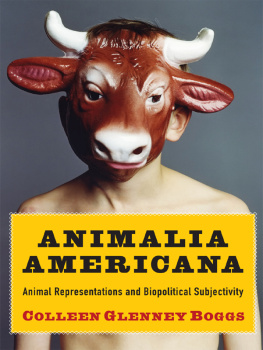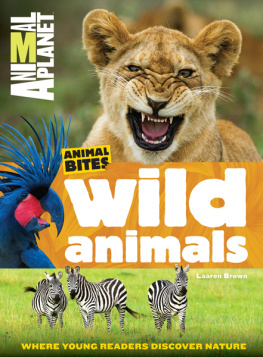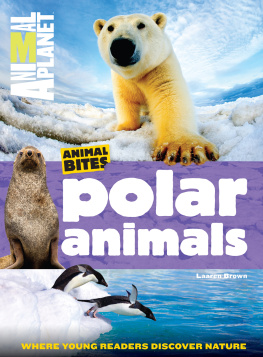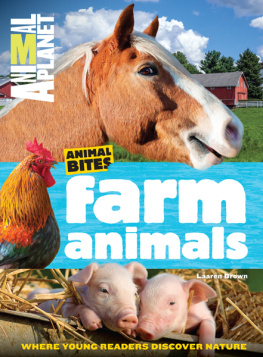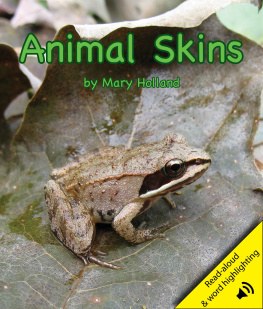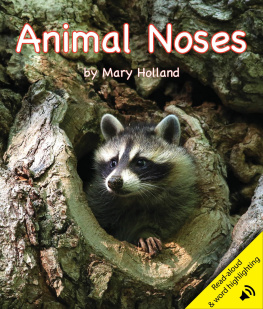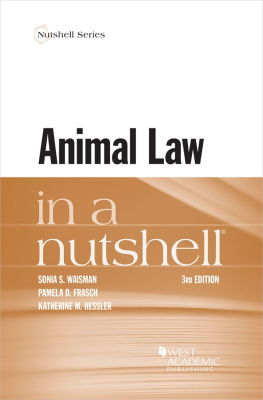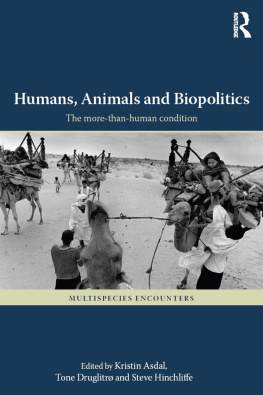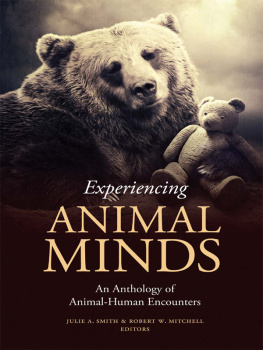ANIMALIA AMERICANA
CRITICAL PERSPECTIVES ON ANIMALS: THEORY, CULTURE, SCIENCE, AND LAW
CRITICAL PERSPECTIVES ON ANIMALS: THEORY, CULTURE, SCIENCE, AND LAW
Series Editors: Gary L. Francione and Gary Steiner
The emerging interdisciplinary field of animal studies seeks to shed light on the nature of animal experience and the moral status of animals in ways that overcome the limitations of traditional approaches to animals. Recent work on animals has been characterized by an increasing recognition of the importance of crossing disciplinary boundaries and exploring the affinities as well as the differences among the approaches of fields such as philosophy, law, sociology, political theory, ethology, and literary studies to questions pertaining to animals. This recognition has brought with it an openness to a rethinking of the very terms of critical inquiry and of traditional assumptions about human being and its relationship to the animal world. The books published in this series seek to contribute to contemporary reflections on the basic terms and methods of critical inquiry, to do so by focusing on fundamental questions arising out of the relationships and confrontations between humans and nonhuman animals, and ultimately to enrich our appreciation of the nature and ethical significance of nonhuman animals by providing a forum for the interdisciplinary exploration of questions and problems that have traditionally been confined within narrowly circumscribed disciplinary boundaries.
The Animal Rights Debate: Abolition or Regulation?, Gary L. Francione and Robert Garner
Animal Rights Without Liberation: Applied Ethics and Human Obligations, Alasdair Cochrane
Experiencing Animal Minds: An Anthology of Animal-Human Encounters, edited by Julie A. Smith and Robert W. Mitchell
ANIMALIA AMERICANA
Animal Representations and Biopolitical Subjectivity
COLLEEN GLENNEY BOGGS
Columbia University Press New York
Columbia University Press
Publishers Since 1893
New York Chichester, West Sussex
cup.columbia.edu
Copyright 2013 Colleen Glenney Boggs
All rights reserved
E-ISBN 978-0-231-53194-8
Library of Congress Cataloging-in-Publication Data Boggs, Colleen Glenney.
Animalia Americana : animal representations and biopolitical subjectivity / Colleen Glenney Boggs
p. cm. (Critical perspectives on animals: theory, culture, science, and law)
Includes bibliographical references and index.
ISBN 978-0-231-16122-0 (cloth : acid-free paper)
ISBN 978-0-231-16123-7 (pbk. : acid-free paper)
ISBN 978-0-231-53194-8 (e-bo0k)
1. American literatureHistory and criticism. 2. Animals in literature. 3. Subjectivity in literature. 4. Human-animal relationshipsUnited States. I. Title.
PS169.A54B64 2013
810.9362dc23 2012019970
A Columbia University Press E-book.
CUP would be pleased to hear about your reading experience with this e-book at .
Jacket Design by Noah Arlow
Author photo by Eli Burak, college photographer, Dartmouth College. Used with permission.
References to websites (URLs) were accurate at the time of writing. Neither the author nor Columbia University Press is responsible for URLs that may have expired or changed since the manuscript was prepared.
For Sean Reed Boggs
Best brother, best friend
CONTENTS
In writing this book, I was fortunate to have tremendously insightful and generous interlocutors to engage with my work: Neel Ahuja, Sandy Alexandre, Anthony Bogues, Hamilton Carroll, Russ Castronovo, Marianne DeKoven, Elizabeth Maddock Dillon, Donatella Izzo, Lindgren Johnson, Cindy Katz, Eric Lott, Michael Lundblad, Laurie Shannon, Ramn Soto-Crespo, John Stauffer, Jordan Stein, Eleonora Stoppino, Rei Terada, Cary Wolfe, and Elizabeth Young made my thinking sharper. I owe a particular debt to Bill Brown, Tim Dean, and Peter Travis. At Dartmouth, I have generous colleagues: Amy Allen, Lisa Baldez, Aimee Bahng, Michael Blumenauer, Leslie Butler, Michael Chaney, Mary Coffey, Soyica Colbert, Kate Conley, Jonathan Crewe, Mona Domosh, George Edmondson, Marty Favor, Veronika Fchtner, Cecilia Gaposchkin, Gretchen Gerzina, Lenore Grenoble, Christopher MacEvitt, Annabel Martin, Andrew McCann, Patricia McKee, Klaus Milich, Klaus Mladek, Monika Otter, Kristin ORourke, Donald Eugene Pease, Adrian Randolph, Ivy Schweitzer, George Trumbull, Barbara Will, and Melissa Zeigerthank you! I am grateful to Darsie Riccio and Isabel Weatherdon for their significant contributions to the ease and efficiency with which I could work.
The Summer Institute for American Studies has been vital to bringing this book into existence: thats where ideas became talks and talks became chapters. I thank Don Pease for bringing this amazing intellectual environment into existence year after year and for inviting me to participate. To him, the codirectors, plenary speakers, and especially my seminar participants, thank you for holding me to high standards, offering constructive criticism, and giving me the opportunity to think about my work in dialogue with your scholarship. Thanks also to audiences at Browns Pembroke Center, the Modern Language Association convention, and the American Studies Association conventions for their feedback on earlier versions.
The American Philosophical Society funded my work with a year-long sabbatical fellowship, and Dartmouth College gave me leave from teaching during the tenure of this award. This time to research, write, and think was and is much appreciated. At Dartmouth College, I held a faculty fellowship through the Leslie Humanities Center in 20072008, and a Curtis Welling Fellowship in 20082009 supported my research.
The Leslie Humanities Centerwhich I now directfunded a manuscript review: Amy Allen, Jonathan Crewe, Marianne DeKoven, Andrew McCann, Don Pease, Adrian Randolph, Ivy Schweitzer, and Cary Wolfe read the manuscript in its entirety and provided insightful feedback that made it a better book. The Leslie Centers Humanities Institute on States of Emergency that Klaus Mladek and George Edmondson codirected in 2009 crucially enhanced my thinking about biopolitics, and I am grateful to the co-organizers as well as to the participants and presenters for their rigorous intellectual contributions to my work.
Many thanks to Wendy Lochner, Christine Mortlock, Christine Dunbar, Anne McCoy, Kathryn Jorge, and Noah Arlow at Columbia University Press, the probing readers whose reports offered crucial guidance for the final stages of revision, and copyeditor Annie Barva.
Thanks to Marylne Altieri and Sarah Hutcheon at the Schlesinger Library, Radcliffe; to Paul Erickson at the American Antiquarian Society; as well as to Hazen Allen, Susan Bibeau, Laura Braunstein, Bill Fontaine, Jay Satterfield (who first said to me, Millie), and Susan Simon for library and computing support at Dartmouth. Thanks to my brother, Sean Reed Boggs, for helping with some of the images. Thanks also to my research assistants, Andrea Olinger and Aurora Wells, as well as to the students in my course Of Nags, Bitches, and Shrews: Women and Animals in Western Literature.
I am grateful to John Stauffer for his generosity in sharing with me his transcription of Frederick Douglasss Pictures lecture and for helping me locate Douglasss description of his encounter with the dog in his speech Farewell to the British People.
An earlier version of has appeared in two previous versions. It is adapted from my essay Emily Dickinsons Animal Pedagogies, PMLA 124, no. 2 (March 2009): 533541, and is reprinted here by permission of the copyright holder, the Modern Language Association of America. It was also published as Animals and the Formation of Liberal Subjectivity in Nineteenth- Century American Literature, in Russ Castronovo, ed.,

